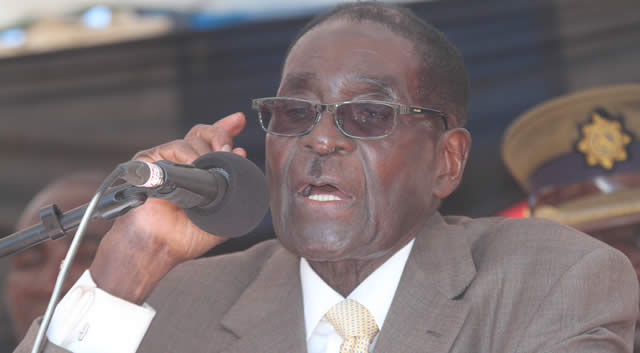Bill gives police shoot-to-kill powers

Patrick Chitumba Midlands Bureau Chief
POLICE will have powers to shoot suspects who resist arrest or attempt to flee from police custody under sweeping new powers.
The Criminal Procedure and Evidence Amendment Bill, currently at the public consultation stage, will allow police to use lethal force, even on unarmed suspects.
Jessie Majome, who chairs the Justice, Legal and Parliamentary Affairs parliamentary portfolio committee, on Tuesday told Gweru residents that if the Bill sailed through, police will have extra powers which she suggested cannot be supported by the Constitution.
She said: “Clause 15, Subsection (2) of section 42 of the Act permits the killing of persons who resist arrest or attempt to escape arrest. Under section 86(3) of the Constitution, the right to life can’t be limited by any law (except to the extent specified in section 48).”
Gweru residents attending the consultative meeting forcefully opposed the proposed law change.
They said if police were given power to kill, it would result in people living at the mercy of police officers.
Martin Chivhoko said police should rather shoot to injure or disarm an armed person. He said the Bill was not even clear on persons who were not armed.
“What if one is not armed but is resisting arrest? Will the police kill that person? Police shouldn’t just kill people,” he said. “What I’m saying is that killing shouldn’t be allowed as the police will finish us (sic).”
Cleopas Shiri from Mkoba suburb said the Bill should state that only dangerous criminals armed with guns should be killed. There was less debate when other proposed amendments were discussed.
Changes to Clause 20 Section 52(2) of the Act, which gives police officers power to stop people found carrying goods at night, passed without much comment.
It reads: “If anyone so stopped cannot give a satisfactory explanation for having the goods, the police officer can convey the person to a police station or prison and detain him or her until the next sitting of a Magistrates’ Court.”
“This clause will replace subsection (2) by other provisions that require, firstly, that a person so stopped cannot be detained unless he or she is suspected of committing an offence; and secondly, which ensures that people arrested under the section are accorded their constitutional rights.”
Clause 21 is being proposed to amend section 54 of the Act, which empowers a police officer to enter without a warrant any premises (other than a dwelling house) to get evidence of the commission of an offence by way of interrogation of any person and the examination of any books, records or other documents. “The amendment will require a police officer subjecting any person to these powers (whether that person is a suspect in a criminal offence or not) to furnish that person upon his or her demand with the particulars of his or her name, rank and number, and the reasons for carrying out the search and seizure without warrant. Any police officer who fails to do so will commit an offence.”











Comments